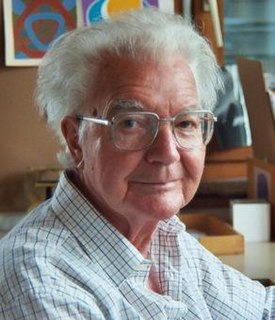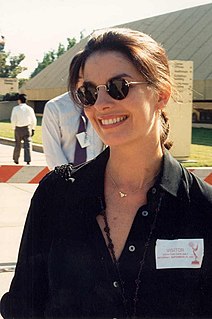A Quote by Mark Twain
Intellectual food is like any other; it is pleasanter and more beneficial to take it with a spoon than a shovel.
Related Quotes
If you remember the shape of your spoon at lunch, it has to be the wrong shape. The spoon and the letter are tools; one to take food from the bowl, the other to take information off the page... When it is a good design, the reader has to feel comfortable because the letter is both banal and beautiful.
Food is "everyday"-it has to be, or we would not survive for long. But food is never just something to eat. It is something to find or hunt or cultivate first of all; for most of human history we have spent a much longer portion of our lives worrying about food, and plotting, working, and fighting to obtain it, than we have in any other pursuit. As soon as we can count on a food supply (and so take food for granted), and not a moment sooner, we start to civilize ourselves.
Food production has affected the environment more than any other activity humans have engaged in. Humanity devotes more land to food production than anything else - roughly a third of the surface area of the earth, much of which was once forest but has been converted by humans into farms or grazing lands.
It is a great delusion to suppose that flesh-meat of any kind is essential to health. Considerably more than three parts of the work in the world is done by men who never taste anything but vegetable, farinaceous food, and that of the simplest kind. There are more strength-producing properties in wholemeal flour, peas, beans, lentils, oatmeal, roots, and other vegetables of the same class, than there are beef or mutton, poultry or fish, or animal food of any description whatever.
Children should not be coddled in their intellectual training any more than in their physical; and though the studies should be made interesting the interest should arise out of the studies themselves. We have bred a generation that cannot digest anything intellectual but tablets of peptonized food. One sees that in the popular papers with their brevity, still increasing in brevity as far as brevity can increase, and in the capacity for thought of our rulers.
Few intellectual tyrannies can be more recalcitrant than the truths that everybody knows and nearly no one can defend with any decent data (for who needs proof of anything so obvious). And few intellectual activities can be more salutary than attempts to find out whether these rocks of ages might crumble at the slightest tap of an informational hammer.
Thin people release the fork, and they chew the food with the fork on the table. They chew their food slowly. They look around at each other or the wall or a picture. They listen to the music. They sit back and take a breath. They do something other than concentrate on shoving the food into their body.






































